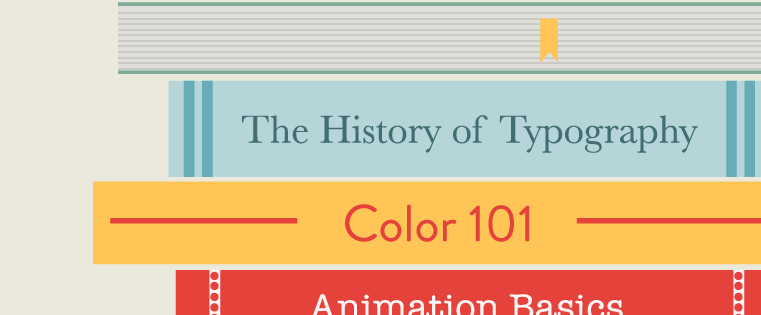
I'll admit it: I'm a type snob. I grit my teeth when someone calls a typeface a "font," cringe when leading is too tight, and almost completely lose it when line length is too long. To me, a sound understanding of typography is critical to furthering yourself as a visual designer, but hey, that's just my opinion. Others would agree that it's also one of the most overlooked aspects of design. That's because good typography is invisible: when it works, the content is the focus of the message, rather than the type itself. But getting comfortable with type is a difficult task, a task that alluded me until I learned about the history of typography.
I was lucky enough to study under an old-school typographer, whose minimal style helped to hammer home the fundamentals of traditional typography. I had expected to dive right into pairing typefaces and setting type, yet we spent the first quarter of the semester learning the history of typography. This turned out to be the most powerful learning experience in my type journey. You see, once I learned how typography has developed, I began to understand why certain type choices are made. For more on that, check out the example below.
Display typefaces were first developed in tune with the business boom of the industrial revolution, as businesses needed a way to attract customers and differentiate their advertisements. Egyptian, or slab serif, faces were thrown into the mix, whose thicker strokes and wide letters worked well for short copy at large sizes to attract attention.
This differed drastically from preceding typefaces as, up until this point, printed typefaces were mainly used for long-form text and designed for legibility. Learning the distinction between how display and text faces were developed allowed me to understand how to combine the intent of a typeface with the intent of a message to boost the content.
Learning the history of typography will do wonders for your design skills, yet its unlikely that you have a typographer on hand to teach you these fundamentals. Fortunately, there are a number of great resources on the web to tackle that hurdle. My personal favorite starting point is "The History of Typography," an animated short created by Ben Barrett-Forrest. In this five minute video, Ben covers everything from Gutenberg and Gill Sans to the difference between Old Style and Transitional typefaces. While it doesn't hit everything you need to know, it is a great starting point to discern what you should be thinking about exploring more.
The History of Typography
What other design skills are you looking to brush up on? Let us know in the comments below! While you're at it, check out some of our other design posts.






